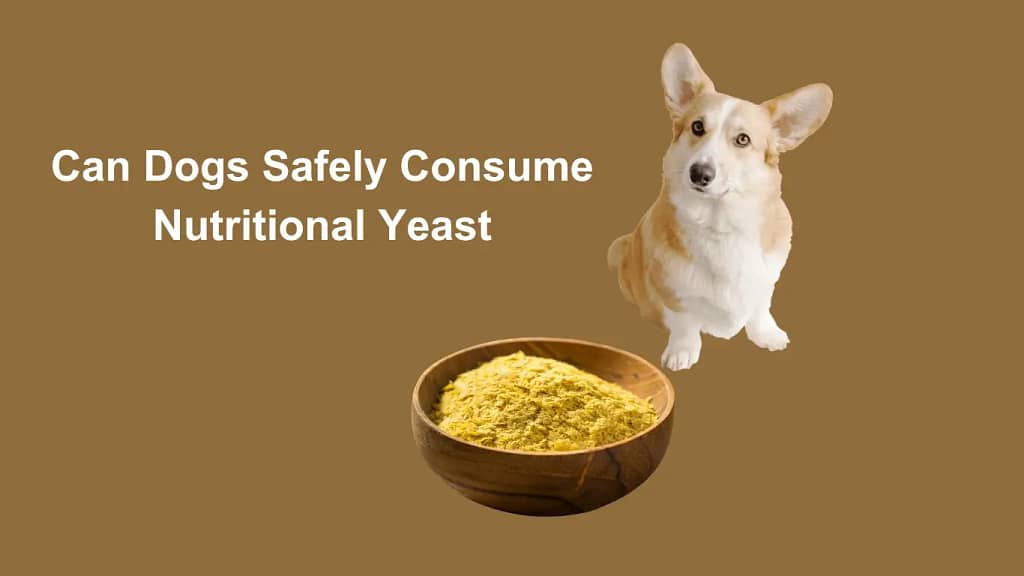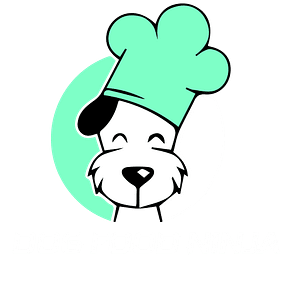Expressing the Truth: Nourishing your pet is a primary priority, but can nutritional yeast genuinely benefit dogs in the face of conflicting advice? Explore the canine culinary world as we uncover surprising secrets and expose expert barks of knowledge. Discover the magic of this simple chemical and embark on a canine wellness adventure unlike any other. Your dog’s health is worth more than a wild guess—unravel the enigma of nutritional yeast safety today.

Table of Contents
ToggleWhat Is Nutritional Yeast?
Nutritional yeast is made from deactivated yeast, typically the Saccharomyces cerevisiae strain. Harvesting, washing, and drying the plant after it has grown on a mixture of molasses and other nutrients results in the final product. Nutritional yeast is widely utilized in vegan and vegetarian cuisine due to its cheesy and nutty flavour. It is also ideal for dog food.
The Benefits Of Nutritional Yeast For Dogs
Dogs can benefit from nutritional yeast in various ways since it is a potent source of critical nutrients. The following are the top ten advantages of feeding nutritious yeast to your dog:
Thiamin, riboflavin, niacin, and folate are all in nutritional yeast. These vitamins are essential for a dog to be healthy and happy overall.
Boosts immune system: The beta-glucans in nutritional yeast can strengthen your dog’s immune system and make them more capable of fending off infections and disorders.
Supports healthy skin and coat: The high quantities of B vitamins in nutritional yeast reduce problems like dryness, itching, and dandruff while promoting healthy skin and a lustrous coat.
Improves digestion: Nutritional yeast includes enzymes that help break down food, enhancing nutritional absorption and minimizing digestive issues.
By consuming nutritional yeast, you can maintain a healthy neural system, support brain function, and reduce the risk of cognitive decline.
Provides critical amino acids: A complete protein diet, nutritional yeast has all the essential amino acids canines require for muscle development and repair.
Nutritional yeast is an appropriate supplement to a dog’s diet when trying to maintain its weight because it is low in calories and fat.
Supports a healthy heart: Nutritional yeast’s high concentration of B vitamins lowers the risk of reducing the risk of cardiovascular diseases.
Boosts energy levels: Nutritional yeast’s B vitamins are essential for converting food into energy, giving your dog the fuel they need for an active lifestyle.
Enhances general well-being: Nutritional yeast supports your dog’s overall health and well-being by offering a variety of key nutrients that are important for vitality and longevity.
Introducing Nutritional Yeast To A Dog’s Diet
It’s important to start slowly and observe your dog’s reaction when introducing nutritional yeast to its food.
Here’s how to provide nutritional yeast to your dog, step by step:
Talking with your veterinarian before changing your dog’s diet is always better. They can offer advice tailored to the requirements and health of your dog.
Start with a little bit: Start by sprinkling a little nutritional yeast on top of your dog’s usual meal. As a result, it can adjust to the new flavour and texture.
Keep an eye out for any adverse effects: Keep an eye out for your dog’s allergy or digestive upset symptoms. Stop using nutritional yeast if your dog displays adverse symptoms, such as itchiness, vomiting, or diarrhoea.
If your dog accepts the nutritional yeast well, gradually increase the dosage over a few weeks. That facilitates the new addition’s adjustment to their digestive system.
Observe your general health: Keep an eye on your dog’s general health and welfare and whether nutritional yeast is safe for your dog if you observe any changes in behaviour, appetite, or energy level.
How To Make Nutritional Yeast For Dogs
You can create nutritional yeast for your dog at home if you prefer a do-it-yourself strategy. An easy recipe to try is as follows:
Ingredients:
- 1 cup of unsalted raw cashews
- Two tablespoons of brewer’s yeast
- One tablespoon of olive oil
Instructions:
- Soak the cashews in water overnight or for at least 4 hours.
- Drain the cashews and place them in a blender or food processor.
- Add the brewer’s yeast and olive oil to the blender.
- Blend until smooth and creamy.
- The mixture should be spread out on a parchment paper-lined baking sheet.
- The mixture should be spread evenly and thinly across the baking sheet.
- Bake at a low temperature (around 200°F) for 2-3 hours or until completely dried.
- Once dried, break the mixture into small flakes or grind it into a powder using a blender or food processor.
- Keep the nutritional yeast in an airtight container in a cold, dry location.
What Is The Difference Between Brewer’s Yeast And Dog Nutritional Yeast?
Nutritional and brewer’s yeast are commonly used interchangeably, although different. The following are the primary distinctions between nutritional and brewer’s yeast:
Nutritional yeast is developed for nutritional purposes alone and has a milder flavour than brewer’s yeast. It’s also enriched with extra nutrients.
Brewer’s yeast is created as a byproduct of beer production. It has a richer flavour and is not enriched with extra nutrients.
Although both nutritional yeast and brewer’s yeast can assist dogs’ health, nutritional yeast is often favoured because of its softer flavour and enhanced nutritional profile.
Using Nutritional Yeast As A Supplement For Dogs On A Vegan Diet
If you feed your dog a vegan or vegetarian diet, nutritional yeast can be a valuable supplement to ensure they receive essential nutrients. Here’s how to incorporate nutritional into a vegan dog’s diet:
Use yeast as a flavour enhancer: Nutritional yeast can be sprinkled on top of your dog’s food to enhance flavour and provide additional nutrients. Start with a small amount and gradually increase as tolerated.
Ensure a balanced diet: While nutritional yeast can provide certain nutrients, it is essential to ensure your dog’s vegan diet is well-balanced and meets all its nutritional requirements. It may involve incorporating other plant-based protein sources and supplements as a veterinary nutritionist recommends.
Common Concerns And Precautions When Feeding Nutritional Yeast To Dogs
There are a few precautions and concerns to keep in mind when using nutritional yeast for dogs:
Dogs’ allergies and sensitivities to nutritional yeast are possible. Constantly watch for any allergy symptoms in your dog, such as itchiness, redness, or gastrointestinal distress.
Yeast sensitivity: Dogs with sensitivities or yeast infections should avoid nutritional yeast, as it can exacerbate their condition.
Moderation: Nutritional yeast should be used as a supplement, not a primary food source. It should be incorporated into a balanced diet and given in moderation to prevent nutrient imbalances.
Individual variations: Each dog is unique, and their nutritional needs may vary. It’s important to consider your dog’s specific dietary requirements and consult with your veterinarian before making significant changes to its diet.
Other Ways To Incorporate Nutritional Yeast Into Your Dog’s Diet
There are more inventive methods to include nutritional yeast in your dog’s diet besides just sprinkling it on top of their food:
Homemade treats: You can add nutritional yeast to homemade dog treats for extra flavour and nutrition.
Mix with peanut butter: Blend nutritional yeast with natural peanut butter to create a tasty and nutritious spread that can be used as a filling for treat toys or as a special reward.
Stir into homemade meals: If you prepare homemade meals for your dog, stir in a small amount of nutritional yeast to boost the nutritional content and enhance the taste.
Conclusion:
When appropriately utilized, nutritional yeast can be a useful supplement to a dog’s diet. A dog’s general health and energy can be supported by the food’s comprehensive nutritional composition, which includes minerals, fibre, important proteins, and B vitamins. Its tasty, cheese-like flavour is palatable to many dogs, making it a fantastic food topping to make meals more enjoyable.
But because some dogs may be sensitive to it and have gastrointestinal discomfort, pet owners must use caution and introduce nutritional yeast gradually.
Frequently Asked Questions (FAQs)
Can Dogs Eat Nutritional Yeast In Their Food?
Yes, dogs can eat nutritional yeast in their food. Nutritional yeast is generally safe for canine consumption and can be a valuable addition to your dog’s diet. It provides a plentiful source of vital nutrients like protein, fibre, B vitamins, and minerals like selenium and zinc.
Is There Any Downside To Nutritional Yeast?
Although nutritional yeast has several health advantages, there are a few things to remember. Some dogs may develop digestive problems, including flatulence or diarrhoea if they consume too much nutritional yeast. Before adding it to your dog’s regular food, it is important to start with a small amount and watch how they respond to avoid this.
Is Nutritional Yeast A Superfood?
Healthy yeast is often called a “superfood” due to its outstanding nutritional profile. It is a complete protein source since it has all nine important amino acids your dog needs to stay healthy. It also has a naturally low lipid content and is devoid of common allergens like dairy and gluten, making it a great choice for dogs with particular dietary sensitivity.
Why Is Nutritional Yeast So Tasty?
Its delicious, cheesy flavour is one of the best flavours that entice dogs with nutritional. This flavour is a byproduct of the healthy yeast’s organic production process. On a nutritional media, like molasses, yeast cells are produced before being heated to be deactivated. The dried, deactivated is packaged as flakes or powder for sale.

